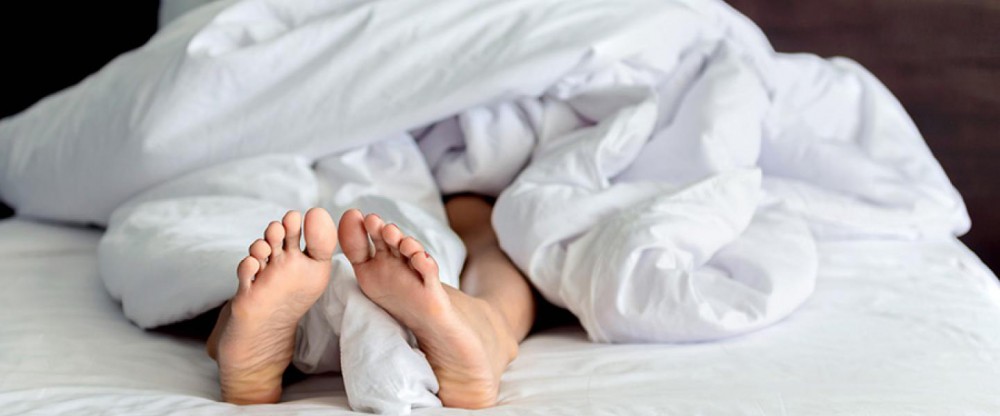What Causes Restless Sleep?
Tossing and turning in bed is normal every now and then. It could be due to stress or your diet: Drinking too much caffeine or alcohol and eating salty snacks and refined carbs (like bread or white rice) before bedtime can lead to sleep-interrupting fidgetiness. But if restless sleep becomes a chronic problem, it’s best not to ignore the issue since it could be a sign of one the following more serious conditions:
Rapid Eye Movement Sleep Behavior Disorder (RBD)
Most people remain still during their dreams, but those with RBD act out their dreams, moving their limbs about, walking, and even hitting and punching. Because RBD can lead to injuries and may associated with an increased risk of developing Parkinson’s disease it’s important to talk with a doctor or sleep specialist if you think you may have RBD. A doctor might prescribe medication such as melatonin or clonazepam to treat the disorder.
Restless Leg Syndrome (RLS)
Also called Willis-Ekbom disease, RLS causes an urge to keep moving the legs throughout the night due to uncomfortable sensations. Getting up and walking around or stretching the legs in bed can ease the discomfort but, of course, this restlessness also interferes with sleep. Luckily, treatment is available, including leg massage, heat pads or ice packs, and using a foot wrap that puts pressure on certain muscles in the foot. If that doesn’t work, your doctor may suggest taking iron supplements or prescribe medication such as anti-seizure drugs, dopaminergic agents, and benzodiazepines, which have shown some success in reducing RLS symptoms.
Obstructive Sleep Apnea (OSA)
Loud snoring and frequent gasp-like interruptions in breathing throughout the night can be a sign of obstructive sleep apnea, a disorder that, if left untreated, can increase the odds of restless sleep, heart trouble, diabetes, and more. Additional symptoms include drowsiness during the day and waking up with a headache, sore throat, or dry mouth. See a physician if you think you may be affected by OSA. A doctor may recommend lifestyle changes, such as losing weight or exercising more frequently, or prescribe a sleep mask that keeps the airways open throughout the night.
Could you have restless legs syndrome? Learn more about the symptoms so you can talk to your doctor.Orexin receptor antagonists: A new class of sleeping pill Find out more about orexin, and a new type of sleep aid drug which may have fewer side effects.The term “anti-aging” may conjure up images of expensive wrinkle creams and nutritional supplements, but one of the most impactful...Though it may come as no surprise that people find it harder to fall asleep when they’re emotionally wound up,...Sleep problems like insomnia can be caused by many different factors, including chronic pain, acid reflux, and depression. But did...You may be familiar with the tossing and turning that occurs when you’re unable to fall asleep at night. But...Sleep problems are common among kids who are anxious or who are making a transition to a new school. They...After safety and nutrition, how much sleep a child gets is uppermost in a parent’s mind. The amount your child...Some people use sleep hypnosis as a tool to help them fall asleep. In a nutshell, sleep hypnosis is a...As you scan the colorful boxes of sleep aids on the pharmacy shelf, it might seem easy to grab one...

Source: Internet





